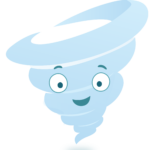Have you wondered why some people find language learning easy? Do you need a talent for it? Or maybe success depends on something completely different? Let’s find out what is the best way to learn a new language!
Meeting Edna
In the last year of high school, everyone wondered what studies to choose for university. To help us, a guidance counsellor was invited to meet with us. She was a short, bespectacled lady who looked like Edna from the movie “The Incredibles”. She asked each of us what we planned after graduation. When it was my turn, I replied: “I would like to do French language studies”.
The guidance counsellor looked at me and asked: “But you’ve lived in France for several years, right?” I felt stupid. I was born in the 1980’s in Poland, which was then behind the Iron Curtain. So, not only had I not been to France, but also going abroad was still a dream for me. Seeing my embarrassment, the counsellor asked: “Well, did you even go to any French classes outside of school?”
Do you know this feeling when you want to crawl under a rock? That’s what I felt at this moment! My parents couldn’t afford to pay for extra classes, so I only learned French in school lessons.
“No”, I replied, lowering my head.
“Then you don’t stand a chance,” she responded.
The words “then you don’t stand a chance” resounded in my head for a long time after that. Do you also have this inner voice telling you, “You have no chance. You can’t do it”?
I was devastated. I felt that learning a foreign language would require frequent trips or at least to take language courses for many years.
Or was it something else?
Why does it come faster to some? Do they have any unique linguistic talent that they were born with? How should we learn languages in an effective way?
The book that changed everything
Fortunately, around the same time, I came across the book “How I Learned Eight Languages” written by Polish journalist and polyglot Zygmunt Broniarek. Using his example, I understood that learning languages requires finding the right learning method as well as perseverance. So, I started to use trial and error to find a way that was right for me to learn languages – something that could finally help me become successful!
Over twenty years later, I entered into the spotlight on the stage of the TV show “The Brain – Brilliant Mind”, during which I was to be tested on fourteen foreign languages (including French, of course!). At this moment, I remembered my conversation with the guidance counsellor. I smiled, because I knew very well that she was wrong back then. Each of us has indeed the ability to learn to speak a foreign language! All you have to do is understand yourself, know your needs and, above all, find your own way of learning.
But how do you do it?
How do you choose a language learning method that will work for you?
Over the years, I’ve heard a lot of advice from polyglots and experts.
“Speak from day one,” repeated Irish polyglot Benny Lewis.
“Learn by translating texts,” claimed the Italian Luca Lampariello.
“You need to build your vocabulary,” I heard Steve Kaufmann from Canada say.
“It’s best to learn by walking naked around a table with a cigar in your mouth” is the advice I read in the biography of one of the greatest polyglots of all time, Emil Krebs.
So, which method is the best? After all, each has its own supporters!
A turning point for me was when I came across the publications on teaching methods by the American educational theorist, David A. Kolb. From his observations, he argued that each of us goes through several stages of learning, whether it is learning a new language or learning to ride a bicycle. Interestingly, each of us prefers one of these stages, so we can be assigned to different learning styles.
Consequently, I decided to transfer the theories of David A. Kolb to the field of foreign language studies. As we learn a new language, we go through four stages, often quite unconsciously.
How we learn languages?
- First, we listen to new elements of the language: sounds, words, and then whole sentences.
- We analyze these elements and compare them with what we already know. We try to assign meaning to them, and to understand the rules that guide them.
- Then, we try to use them, combine them into new words and sentences.
- And when we gain confidence, we begin to use them freely.
And once we use the language more freely, we eventually come across new language elements, so we go back to stage one and go through the four stages again.
Each of us prefers one of these stages, and thus it can be assigned to one of the main learning styles. Although David A. Kolb lists nine learning styles, it is worth focusing on four basic learning styles, assuming that each of us can combine two (or more) of them in learning. I have assigned each of these four styles one of the elements, because they perfectly reflect their characteristics in the case of foreign language learning.
The four language learning styles
The first style is “water“. People who like to learn according to this style enjoy contact with another person, and the emotions related to a conversation, but they are more observers. They prefer to listen first. So, they learn a new language mainly through contact with it, the context and feelings.
The second style is “earth“, meaning people who like to understand every element of a language. They feel bad when they are not sure about something. We have people among them who love grammar, tables with variations and explanations. But they are also people who don’t like to just throw themselves into the deep end. They prefer when everything is properly organized, when they know what to expect.
The third style is “air” – people who love to act, but more independently, without the help of others. They are constantly looking for new solutions, and trying out what they’ve learned. Another important thing, they love to write, take notes, compare and solve exercises. They learn the language in action, but they do not care so much about contact with other people – they often prefer to learn on their own.
The fourth style is “fire” – these are people who love to talk. They dominate the conversation and ask a lot of questions. As you may already guess, they also take great pleasure in being able to share something with others. They are always active. They don’t mind making mistakes. The willingness to convey emotions is more important to them.
As you can see, each of these elements can be assigned one of the linguistic competences: water is listening, earth is reading, air is writing, and fire is speaking.
What next?
When you get to know the full description of each element, you will quickly see that each learning method makes sense, but needs to be chosen appropriately for each individual. If you are “fire”, you learn the most in the beginning by following Benny Lewis’ advice and speaking from day one. As “air”, you will be at ease with the translation method that Luca Lampariello talks about.
Remember, however, that to learn a language, you must go through each of the four stages – stopping at one of them will benefit you, but only for a while.
Which element (or learning style) are you? If you aren’t able to assign yourself right away, do a short test on the basis of which we will tell you what your learning style is. After its completion, you will also have the opportunity to receive free advice on how to learn based on your learning style.
Also, be sure to write which element you are in the commentary!













Earth here !!!!
fire and earth..half half
My language learning styles is Earth